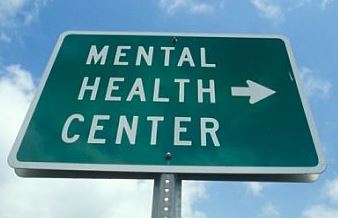Understanding Depression and Rehab for Depression Treatment Option
Depression is a mood disorder that causes a persistent feeling of sadness and loss of interest. The American Psychiatric Association’s Diagnostic Statistical Manual of Mental Disorders, Fifth Edition (DSM-5) classifies depressive disorders into Disruptive mood dysregulation disorder; Major depressive disorder; Persistent depressive disorder (dysthymia); Premenstrual dysphoric disorder; and Depressive disorder due to another medical condition [1].
Depression is tough to explain to someone without personal experience with it. It is an ineffable state of being that can’t be adequately described. Like other phenomenological experiences that defy description, depression, too, cannot be put into words. When someone is depressed, his or her mind and body are in a state of tremendous imbalance. Brain physiology is altered, stress hormones are constantly surging, and almost all bodily systems are affected. This is why the symptoms of depression usually disrupt a person’s regular rhythms of mind and body.
The common features of all depressive disorders are emptiness, sadness, or irritable mood, accompanied by somatic and cognitive changes that significantly affect the person’s capacity to function. Because of false perceptions, nearly 60% of people struggling with depression do not seek medical help. Many feel that the stigma of a mental health disorder is unacceptable in society and may hinder personal and professional life. There is good evidence indicating that most antidepressants do work, but the individual response to treatment may vary.

Is Rehab Effective in Treating Depression?
Depression can cause someone to suffer terribly. At its worst, depression can lead to death by suicide. Around 800,000 people die from suicide each year. If you or anyone you know shows signs of depression for more than a few days – especially if it’s for two weeks for most of each day – it’s essential to seek professional help without delay. This depression rehab program is going to give you the kind of mental clarity you need to “reset”, but it’s also going to teach you how to recognize all of the worthiness that you have and all of the value that you bring to the world.
Get Help. Get Better. Get Your Life Back.
Searching for Accredited Drug and Alcohol Rehab Centers Near You?
Even if you have failed previously and relapsed, or are in the middle of a difficult crisis, we stand ready to support you. Our trusted behavioral health specialists will not give up on you. When you feel ready or just want someone to speak to about therapy alternatives to change your life call us. Even if we cannot assist you, we will lead you to wherever you can get support. There is no obligation. Call our hotline today.
(844) 597-1011How does Depression Affect Behavior?
Depression can affect your behavior and your life in many ways. Its effects on behavior will be different depending on age and individual circumstances. Some behavioral symptoms of depression are dependent on age. There is a strong relationship between depression and high-risk behaviors. Excessive drinking, drug abuse, unsafe sex, and cutting are all self-injurious behaviors that individuals may use to provide temporary relief from intense emotional pain.
Depression can unearth agonizing feelings that many people try to escape. For instance, a depressed man who grew up in a violent and neglectful home may turn to alcohol to bury the feelings of rage and poor self-esteem. For all of these high-risk behaviors, a part of them is trying to numb themselves from really difficult and significant feelings of anger, loss, shame, or anxiety. Some turn to harmful coping methods because their families modeled such behavior. For example, if one’s parents dealt with problems through drinking, an adult child might do the same.

Get Your Life Back
Find Hope & Recovery. Get Safe Comfortable Detox, Addiction Rehab & Dual Diagnosis High-Quality Care.
Hotline(844) 597-1011Can Depression Be Cured?
There’s no cure for depression, but you still have plenty of options for treatment, all of which can improve your symptoms and minimize their impact on your daily life. The diagnosis of depression is based on history and physical findings. Unfortunately, no diagnostic laboratory tests are available to diagnose the major depressive disorder. Laboratory studies are, however, practical to exclude medical illnesses that may present as major depressive disorder.
Medication alone and brief psychotherapy (cognitive-behavioral therapy, interpersonal therapy) alone can relieve depressive symptoms. However, combination therapy has also been associated with significantly higher improvement rates in depressive symptoms, increased quality of life, and better treatment compliance. There is also empirical support for the ability of CBT to prevent relapse.
Depression is a lifelong mental health condition, and there is no cure. However, this does not necessarily mean that it will affect a person every day of their life. With the right treatment plan, remission is possible. However, the treatment plan may need adjusting throughout a person’s life. Depression is one of the most treatable mental health conditions. Between 80% and 90% of people with depression respond well to treatment, meaning they see an improvement in their symptoms or the symptoms disappear.
Is There Rehab for Depression?
While episodes of depression may eventually lift themselves, they may take several months of mental and physical pain, sadness, and disinterest in life. They can be very costly to self, relationships, and work. In addition, there is considerable evidence that the longer a depression episode lasts, the more likely future episodes of greater intensity.
There are many effective treatments for depression, including inpatient rehab for depression. Inpatient rehab for depression is the most effective treatment available. Over a week to a few months, it allows the person to dig deep and to the core. Inpatient rehab for depression enables the patient to escape the stresses of daily life and focus entirely on their recovery.
In inpatient rehab for depression, people with depression spend one-on-one time with a therapist to help develop healthy coping skills, prevent depression relapse, and discuss the roots of depression. Group therapy is a vital component of inpatient rehab for depression, as it allows individuals facing similar challenges to work together to tackle daily problems and support one another. Families and loved ones are generally involved in inpatient rehab for depression programs as it allows them to learn steps to support and help their loved ones.
First-class Facilities & Amenities
World-class High-Quality Addiction & Mental Health Rehabilitation Treatment
Rehab Centers TourRenowned Addiction Centers. Serene Private Facilities. Inpatient rehab programs vary.
Addiction Helpline(844) 597-1011Proven recovery success experience, backed by a Team w/ History of:
15+
Years of Unified Experience
100s
5-Star Reviews Across Our Centers
10K
Recovery Success Stories Across Our Network
- Low Patient to Therapist Ratio
- Onsite Medical Detox Center
- Comprehensive Dual-Diagnosis Treatment
- Complimentary Family & Alumni Programs
- Coaching, Recovery & Personal Development Events
Can You Go To Rehab for Depression?
Most individuals associate rehab with alcohol and addictions. However, there are similar inpatient residential mental health treatment facilities specializing in mental health disorders beyond just substance use disorders. For example, inpatient rehab for depression in a residential setting allows patients to immerse themselves in an environment entirely focused on improving mental health.
Inpatient rehab for depression provides a comfortable setting for an extended stay. The centers offer daily psychiatric care and support groups. Also, inpatient rehab for depression teaches life, occupational, and social skills alongside clinical care.

How Long Do You Stay in an Inpatient Treatment Depression Rehab?
At these facilities, individuals with depression check-in and stay for a certain amount of time — the length of which is usually determined by you and a team of mental health professionals. At these inpatient rehab for depression facilities, individuals with depression check in and stay for a certain amount of time — the length of which is usually determined by you and a team of mental health professionals.
Inpatient rehab for depression facilities may have an intake or admissions review process where they speak with you and your family members about your symptoms, challenges at work or school, and issues you have with other people. This interview might be done in person or by phone.
The staff members may also ask permission to contact your previous care providers for a clearer picture of your medical and psychiatric history, other depression treatment received, and any potential obstacles to recovery and long-term health. The information discussed during intake is kept private.
World-class, Accredited, 5-Star Reviewed, Effective Addiction & Mental Health Programs. Complete Behavioral Health Inpatient Rehab, Detox plus Co-occuring Disorders Therapy.
CALL(844) 597-1011End the Addiction Pain. End the Emotional Rollercoaster. Get Your Life Back. Start Drug, Alcohol & Dual Diagnosis Mental Health Treatment Now. Get Free No-obligation Guidance by Substance Abuse Specialists Who Understand Addiction & Mental Health Recovery & Know How to Help.
Depression Residential Treatment
Some individuals may not know when to seek inpatient depression treatment. Most people aren’t educated on the real meaning of depression or depression as a real mental health condition. The first step before seeking depression inpatient treatment usually is to see a mental health counselor and follow their treatment plan. However, if this first option doesn’t help and persistent feelings of hopelessness and depression continue, you may want to explore depression inpatient treatment options.
Some signs that inpatient treatment for depression may be the answer are:
- Ongoing alcohol or drug addiction issues.
- Relationships or family struggles related to sadness, guilt, negativity, or agitation
- Isolationist behavior and a lack of motivation to enjoy activities with others.
Depression inpatient treatment facilities will provide a fully customized treatment plan. This is based on thorough assessments you receive before and during the intake, or admissions, process. Your team of clinicians—comprised of some combination of medical doctors, psychologists, psychiatrists, and complementary therapists—can combine different elements into a treatment plan just for you.
Rehab Depression Therapy Near Me
Various effective Depression treatments are very effective but vary depending on the depressive disorder, from moderate to severe.
- Psychological treatment is one of the most effective for depression. Therapists treat patients using techniques including Cognitive Behavioral Therapy (CBT), Dialectical Behavior Therapy (DBT), and Interpersonal Psychodynamic Therapy (IPT), among others.
- In addition to therapy, Antidepressant medication may be prescribed. The most common medications prescribed for depression are Selective Serotonin Reuptake Inhibitors (SSRIs) and Tricyclic Antidepressants (TCAs).
- Finally, support is the simple process of discussing practical solutions and possible causes to educate family members.
Experience Transformative Recovery at We Level Up Treatment Centers.
See our authentic success stories. Get inspired. Get the help you deserve.
Start a New Life
Begin with a free call to an addiction & behavioral health treatment advisor. Learn more about our dual-diagnosis programs. The We Level Up Treatment Center Network delivers recovery programs that vary by each treatment facility. Call to learn more.
- Personalized Care
- Caring Accountable Staff
- World-class Amenities
- Licensed & Accredited
- Renowned w/ 100s 5-Star Reviews
We’ll Call You
Rehab for Depression and Substance Use Near Me
Major depressive disorder (MDD) is often accompanied by substance abuse or dependence. The mental health field has long discussed whether these conditions are independently occurring disorders or are overlapping illnesses intertwined by common etiologic and vulnerability factors. The initial presentation of depression can be obscured by the overriding symptoms or side effects of a substance use disorder (SUD).
In the general population, the prevalence of a current substance use disorder in persons with Major depressive disorder (MDD) ranges from 8.5 to 21.4%, with a lifetime prevalence of comorbid SUDs ranging from 27 to 40% [6]. Co-occurring depression has an adverse effect on the course of SUDs. Current depression predicted poorer treatment response and higher rates of relapse.
People who suffer from depression can experience severe sadness that lasts weeks or even months at a time. It’s common for those battling mental illness to also struggle with substance abuse. Sometimes it can be difficult to determine which condition came first. People faced with prolonged periods of profound sadness may reach for drugs or alcohol to ease the pain, feelings, and other symptoms.
However, substance use can actually make depression symptoms more severe. Clinical depression alone increases the risk of accidental injury, suicide, and other forms of self-harm. Add in drugs or alcohol, and the threats to the person’s mental and physical health can be extreme.
To determine the most effective ways to treat depression and substance abuse comorbidity, it’s crucial to first get an accurate assessment of all the symptoms. When the symptoms have been evaluated by a mental health professional, it may be determined that another form of mental condition is present and needs a particular type of treatment.
Detox Treatment
The first step in treatment is medical detox. It will help you navigate the complicated withdrawal process but doesn’t address patterns of thought and behavior contributing to substance abuse. Various treatment approaches and settings can help provide the ongoing support necessary to maintain long-term sobriety after you complete detox.
Cravings are very common during detox and can be challenging to overcome. This often leads to relapse. Constant medical care provided during inpatient treatment and depression rehab help prevent relapse. Clinicians can provide necessary medication and medical expertise to lessen cravings and the emotional effects of alcohol withdrawals.
Psychotherapy
Several different modalities of psychotherapy have been used in the treatment of depression, including:
- Cognitive Behavioral Therapy (CBT) – is an effective treatment that involves changing both the patterns of negative thoughts and the behavioral routines which are affecting the daily life of the depressed person for various forms of depression.
- Dialectical Behavior Therapy – is a comprehensive mental health and substance abuse treatment program whose ultimate goal is to aid patients in their efforts to build a life worth living. The main goal of DBT is to help a person develop what is referred to as a “clear mind.”
- Person-Centered Therapy – is a strategy that allows and encourages clients to understand and resolve their concerns in a safe, supportive environment.
Dual Diagnosis Treatment
Substance abuse and mental health disorders often co-occur. In many cases, traumatic experiences can result in a mental health disorder and substance abuse. Dual diagnosis programs treat both of these issues together. The best approach for the treatment of dual diagnosis is an integrated system. This strategy treats both the substance abuse problem and the mental disorder simultaneously. Regardless of which diagnosis (mental health or substance abuse problem) came first, long-term recovery will depend largely on the treatment for both disorders done by the same team or provider.
Medication-Assisted Treatments
Medication-Assisted Treatments (MAT) for substance use and mental health disorders are commonly used in conjunction with one another. This includes the use of medications and other medical procedures. During your rehab for depression and substance use, the staff from your treatment facility will help you identify what caused your addiction and teach you skills that will help you change your behavior patterns and challenge the negative thoughts that led to your addiction. Sometimes, the pressures and problems in your life lead you to rely on substances to help you forget about them momentarily.
If you or your loved one suffers from alcohol and depression, help is just a phone call away. Professional addiction treatment is necessary for fast and effective recovery. Contact us today at We Level Up treatment facility. We provide utmost care with doctors and medical staff available 24/7 for life-changing and lasting recovery. We offer an enhanced opportunity to return to a fulfilling and productive life.




